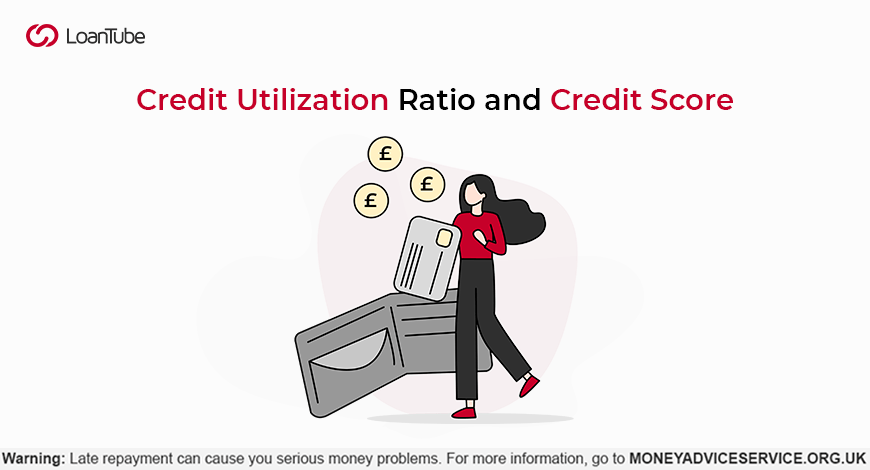Credit, if used responsibly, is a building block for your financial future. The use of credit not only helps you build assets but also in establishing a credit history. The richer your credit history, the better will be your credit score – and there’s not one but many reasons why you should maintain a high credit score.
But for credit to work in your favour, you will have to repay it responsibly. When you use credit in moderation and pay it back on time, you will likely have a low credit utilisation ratio and a higher credit score.
Read on to learn more about how your credit utilisation and credit score affect one another. Can closing your credit card lower your credit utilisation? Find out here.
Maximise your options: Compare and apply for loans below with LoanTube
Apply Filters
What is credit utilisation?
- Your credit utilisation ratio is the percentage of revolving credit that you use or spend out of the total revolving credit available to you. Put simply, when you divide the total amount that you’ve spent out of your credit limit by your total credit limit, you get the credit utilisation ratio.
- For instance, your overall credit limit for 3 of your credit cards is £10,000, and you end up spending £4500 during a Christmas shopping spree. Now, your credit utilisation ratio would round up to 45%, meaning that you’ve used up almost half of your credit limit.
- Credit Reference Agencies use their scoring models to calculate credit scores. But all these models take your credit utilisation ratio into account. Depending on the CRA and the scoring model in use, this metric impacts about 30% of your credit score.
- Since credit utilisation indicates your spending pattern, it’s needless to say that the lower it is, the better. A low credit utilisation ratio is an exhibit of your responsible credit behaviour. A high utilisation rate, conversely, could be an indication of an underlying spending problem.
- Plus, imprudent use of credit could lead to a repayment failure, which could be detrimental to your credit score. A low credit score can make it challenging to obtain credit (such as auto loans, mortgages, etc.) for your future goals and financial milestones.
What is the ideal percentage for credit usage?
- The credit utilisation ratio is an integral part of your credit report – CRAs take it into account while calculating your credit score. When you spend using your credit card, your credit utilisation ratio increases until you repay your credit card balance, briefly lowing your credit score.
- Once you pay off the balance, your creditors will share the updated information with the CRAs, after which the utilisation rate will jump back up. For instance, if your credit limit is £5000 and you pay household bills worth £1700, your credit utilisation rounds off to 34%.
- When you pay off the outstanding balance on your credit card for this payment, your credit utilisation rate will drop. Plus, as the CRAs update your credit report, your credit score will gradually improve.
- Ideally, your credit utilisation ratio should be below 30% of the total credit available. So, let’s say you have a revolving credit limit of £20,000; you should not utilise more than £6000 from this available credit. Anything above £6000 will raise your utilisation rate and lower your credit score briefly.
- A credit utilisation rate of 30% or less for lenders and creditors is an indicator of responsible credit behaviour and efficient financial management. On the other hand, a higher ratio might give off a bad impression to creditors and lenders.
Does my credit utilisation impact my credit score?
- Credit utilisation constitutes up to 30% of your credit score. So, the lower and well-maintained credit utilisation rate, the higher your credit score will be. Although, various other factors come into play when CRAs calculate your credit score, such as your income, debts, missed payments, defaults, CCJs, electoral registration status, etc. So, while it is crucial to maintain your credit utilisation rate, you will also benefit from working on the other factors.
Can closing my credit card lower my credit utilisation ratio?
- Closing an account can have the same short-term impact as opening a new card. You are reducing your credit limit when you close a credit card account. The credit utilisation rate on a credit card where you owe nothing is zero, and reducing your total available credit will not change it. It is possible that your credit score could suffer if your credit history has been affected by a closed credit card account, depending on how old the account is.
- Your utilisation rate may be impacted if you carry a balance and close an account with no balance to reduce your total available credit. Say that you have £10,000 in credit on two cards. The credit limit on each card is £10,000, and the debt on one is £10,000. If you have £20,000 in credit on two cards and owe £10,000 on one, at the moment, you have a 50% credit utilisation rate. Should you decide to close one of your zero-balance credit accounts, your credit limit would drop from £20,000 to £10,000. The credit utilisation rate of your account would now sit at 100%!
Conclusion
- Maintaining a healthy credit utilisation is vital – using some of your credit is better than using none at all. If you don’t establish your credit history, you will find it challenging to secure credit because there’s no way for lenders to assess your creditworthiness.
- So instead of desisting credit, try to find a healthy balance between your needs, your income and your credit.


